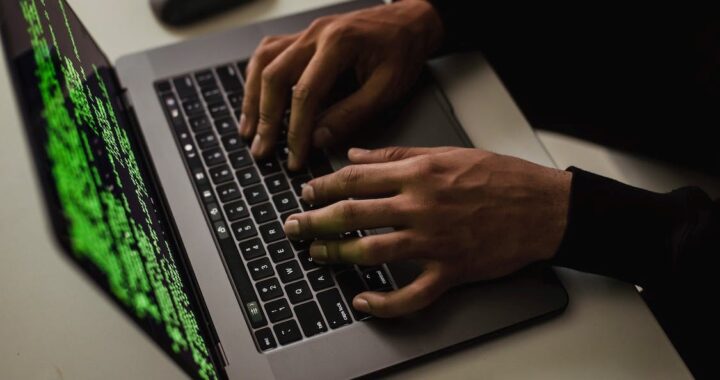Can you trust what you think you know about digital evidence? With cybercrime on the rise, digital evidence has become a critical part of investigations. From fraud cases to intellectual property theft, a digital footprint often holds the key to solving cases.
Cybercrime losses exceeded $12.5 billion in 2023—a number that keeps climbing as technology advances. Yet, there’s a surprising amount of misinformation about how digital evidence is collected and used. Misunderstandings can lead to delays, legal complications, and even case dismissals.
At Eclipse Forensics, we specialize in offering precise and professional digital forensic services to ensure that evidence is collected, preserved, and analyzed correctly. Our digital forensic consultants are trained to separate myth from fact, providing reliable solutions to complex challenges.
In this blog, we’ll break down common myths surrounding the collection of digital evidence, explain the facts, and help you understand how a digital forensic expert ensures the integrity of data during investigations.
Myth 1: Deleted Files Are Gone Forever
Fact: Deleted doesn’t mean destroyed.
One of the most pervasive myths is that when a file is deleted, it’s gone for good. In reality, deleting a file often removes the reference to the file from the system’s directory, but the data remains on the storage medium until it’s overwritten.
A skilled data forensic expert can recover these “deleted” files using advanced tools and techniques. However, the success of recovery depends on how much the storage device has been used after deletion.
Key Points:
- What happens when you delete a file? It’s marked as free space but isn’t immediately erased.
- How can it be recovered? By analyzing the storage medium with specialized software.
- When is recovery impossible? If the file has been overwritten multiple times.
Myth 2: Digital Evidence Collection Can Be Done by Anyone

Fact: Expertise is critical for accuracy and admissibility.
It’s tempting to think that anyone with basic tech knowledge can collect digital evidence. However, improper handling can alter or destroy evidence, making it inadmissible in court.
A digital forensic expert follows strict protocols to ensure evidence integrity, such as using write-blocking tools and creating forensic copies of data to avoid tampering. This expertise is essential to ensure the evidence meets legal standards.
Common Risks of Amateur Collection:
- Altering timestamps or metadata.
- Contaminating the evidence through improper storage.
- Failing to document the chain of custody.
Hiring a professional digital forensic consultant ensures the collection of digital evidence is done correctly and stands up to scrutiny in legal proceedings.
Myth 3: Cyber Evidence Is Always Easy to Trace
Fact: Tracing evidence often requires sophisticated analysis.
Popular media often portrays cyber forensic experts tracing hackers in real-time with ease. In reality, cyber investigations involve piecing together complex digital trails. Criminals use tactics like encryption, VPNs, and anonymizing tools to obscure their tracks.
While advanced forensic tools help crack these layers of obfuscation, the process is time-consuming and requires expertise.
Tools and Techniques Used:
- Log analysis: Identifying patterns in access logs.
- Network traffic monitoring: Detecting suspicious activities.
- Decryption tools: Unlocking encrypted files and communications.
Myth 4: Digital Evidence Is Self-Explanatory
Fact: Context is critical.
At first glance, digital evidence like an email, a timestamped message, or a login attempt might seem straightforward. However, without proper context, such evidence can be misleading or misinterpreted. For instance, consider a login attempt recorded at an unusual hour. It might suggest unauthorized access—but what if the legitimate user simply forgot to log out earlier or needed to access the system remotely for a valid reason?
This is where the role of a digital forensic expert becomes indispensable. They don’t just extract evidence; they interpret it in context to ensure accurate conclusions.
Why Context Is Crucial
Avoiding False Accusations
Misinterpreting digital evidence can have devastating consequences. A single misjudged piece of data could lead to accusing the wrong person, ruining reputations, or, worse, letting the actual perpetrator walk free.
Example: A user’s email appears to have sent spam. On closer examination, a data forensic expert might discover that the account was compromised by malware rather than misused by the account owner.
Cross-Referencing Data for Reliability
Evidence is rarely reliable in isolation. By cross-referencing digital evidence with other sources, investigators can uncover patterns or anomalies that may not be apparent at first.
For example:
- An incriminating email might be supported—or contradicted—by chat logs, access logs, or metadata from other devices.
- A suspicious bank transfer could align with GPS logs that place the accused in a different location at the time of the transaction.
Through cross-referencing, the digital forensic consultant ensures that the findings are both robust and accurate.
Understanding Intent
Even when digital evidence seems clear, it doesn’t always explain the why. Intent is a critical factor in legal and corporate investigations, and digital forensic experts are skilled at piecing together multiple layers of evidence to uncover it.
Example Scenarios:
- Case of unauthorized access: Was an employee accessing sensitive data out of curiosity, or was there malicious intent to sell the information?
- Case of file deletion: Was the deletion accidental, or part of a deliberate attempt to destroy evidence?
Determining intent often requires analyzing behavioral patterns, communication records, and timelines to build a coherent narrative.
How Digital Forensic Experts Provide Context

A digital forensic consultant follows a systematic approach to ensure the evidence tells the complete story:
- Forensic Imaging: Creating exact, unaltered copies of digital devices for analysis.
- Timeline Reconstruction: Building a timeline of events from logs, metadata, and activity records.
- Correlation Analysis: Linking seemingly unrelated pieces of evidence to uncover patterns or discrepancies.
- Expert Testimony: Explaining findings in court or legal proceedings, translating technical complexities into understandable terms.
The Role of Expertise in Complex Cases
Without the expertise of a data forensic expert, evidence risks being oversimplified or misused. It’s not enough to find the “smoking gun.” The evidence must be presented within its proper context to withstand scrutiny in legal, corporate, or compliance settings.
Proper contextual analysis is what ensures justice, accuracy, and clarity. By relying on trained professionals, you avoid the pitfalls of rushed or incomplete conclusions.
Myth 5: All Digital Evidence Is Equal
Fact: The quality and type of evidence matter.
Not all digital evidence carries the same weight in an investigation. For example:
- A video recovered through digital video forensics might hold more sway than a text message.
- Metadata can provide critical insights but requires careful verification to ensure accuracy.
Types of Digital Evidence:
- Text-based Evidence: Emails, chats, and text messages.
- Visual Evidence: Photos and videos, often analyzed through digital video forensics.
- Metadata: Information about files, such as creation dates and access logs.
- Network Data: IP addresses and connection logs.
Each type requires unique handling techniques to ensure its admissibility in court.
Myth 6: Public Wi-Fi Use Is a Dead Giveaway
Fact: Public networks complicate, not simplify, evidence gathering.
While public Wi-Fi is often seen as a vulnerability, it’s not always a clear giveaway. Criminals exploit open networks to mask their activities, making attribution challenging.
Challenges with Public Wi-Fi:
- Shared IP addresses: Multiple users can appear under the same identifier.
- Encrypted communications: Many activities on public Wi-Fi are encrypted, requiring additional decryption efforts.
A skilled cyber forensic expert uses advanced techniques to analyze network evidence and separate legitimate users from potential threats.
Myth 7: Collecting Digital Evidence Is Only About Technology

Fact: It’s also about legal compliance and ethical practices.
The collection of digital evidence isn’t just a technical task—it’s a legal one. Evidence must be gathered in compliance with laws governing privacy, search warrants, and admissibility. Ethical practices are equally important to avoid legal repercussions.
Legal and Ethical Considerations:
- Search and seizure laws: Governing how digital devices can be examined.
- Privacy protections: Ensuring personal data isn’t mishandled.
- Chain of custody: Maintaining a clear record of evidence handling.
Myth 8: Digital Evidence Can’t Be Faked
Fact: Forged evidence is a real threat.
Deepfake videos, edited documents, and manipulated metadata can all be used to create false evidence. Detecting and disproving such forgeries requires the expertise of a digital forensic consultant.
How Forgeries Are Detected:
- Examining metadata inconsistencies.
- Using software to detect image or video manipulation.
- Cross-referencing evidence with reliable data sources.
Why Accuracy in Evidence Collection Matters
Inaccurate evidence collection can derail an entire investigation. It can result in dismissed cases, wrongful accusations, or the inability to hold criminals accountable. That’s why working with a certified digital forensic expert is non-negotiable for serious cases.
How We Can Help You Get It Right
Isn’t it fascinating how much misinformation exists about digital evidence? With technology advancing rapidly, myths will continue to emerge, but the facts remain crucial for effective investigations. At Eclipse Forensics, our digital forensic consultants specialize in providing reliable, admissible results for a wide range of cases.
Whether you need help with digital video forensics, recovering deleted files, or ensuring your evidence holds up in court, our expertise guarantees accuracy and integrity. Contact us at (904) 797-1866 today to learn more about how our digital forensic services can make a difference in your case.

